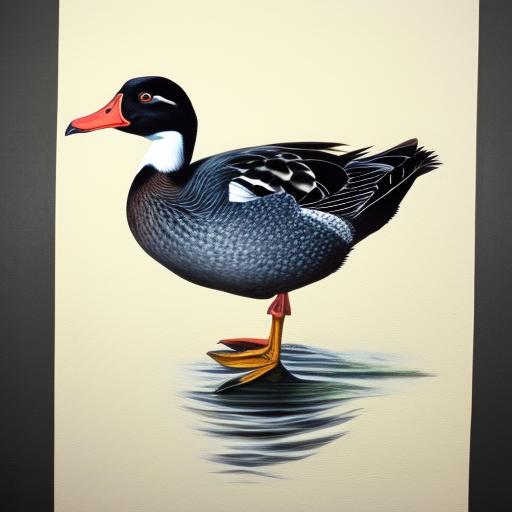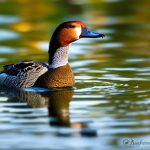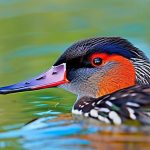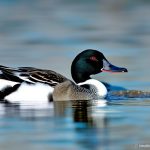Black duck breeds are a popular choice for many poultry enthusiasts due to their striking appearance and unique characteristics. These breeds are known for their glossy black feathers, which set them apart from other duck breeds. Black ducks are also valued for their adaptability, hardiness, and friendly disposition, making them a great addition to any farm or backyard flock. In this article, we will explore the various characteristics of black duck breeds, popular breeds within this category, breeding and rearing practices, as well as the care and challenges associated with raising these beautiful birds.
Key Takeaways
- Black duck breeds are a popular choice for poultry enthusiasts due to their unique characteristics and adaptability.
- Black duck breeds are known for their hardiness, foraging abilities, and calm temperament, making them an ideal choice for backyard poultry farming.
- Some popular black duck breeds include the Cayuga, Swedish Black, and Black East Indie, each with their own distinct characteristics and traits.
- Breeding and rearing black ducks require careful attention to their dietary needs, housing requirements, and protection from predators.
- Caring for black duck breeds involves providing them with a balanced diet, regular health check-ups, and a safe and comfortable living environment.
Characteristics of Black Duck Breeds
Black duck breeds are known for their stunning black plumage, which can range from a deep, glossy black to a more iridescent hue in certain lighting. Their feathers are often described as having a beautiful sheen that adds to their overall appeal. In addition to their striking appearance, black duck breeds are also known for their hardiness and adaptability to various climates. They are well-suited to both free-range and confined living situations, making them a versatile choice for poultry enthusiasts. Black ducks are also known for their friendly and docile nature, making them a great choice for those looking for a breed that is easy to handle and interact with.
In terms of size, black duck breeds can vary, with some breeds being on the smaller side while others are larger and more robust. Their size and build make them suitable for both meat and egg production, adding to their overall value as a poultry breed. Black ducks are also known for their strong maternal instincts, making them excellent brooders and mothers. Overall, the characteristics of black duck breeds make them a popular choice for those looking for a visually striking, adaptable, and friendly addition to their flock.
Popular Black Duck Breeds
There are several popular black duck breeds that are favored by poultry enthusiasts for their unique characteristics and qualities. One such breed is the Cayuga duck, which is known for its stunning iridescent green and black plumage. The Cayuga duck is a dual-purpose breed, valued for both its meat and egg production. Another popular black duck breed is the Swedish Black duck, which is known for its solid black plumage and calm disposition. This breed is also valued for its ability to lay a good number of eggs, making it a practical choice for those looking to raise ducks for egg production.
The Black East Indie duck is another popular black duck breed, known for its small size and striking appearance. This breed is often referred to as the “goth” of the duck world due to its all-black plumage and mysterious look. The Black East Indie duck is also known for its friendly nature and adaptability to various living conditions. These are just a few examples of the popular black duck breeds that are favored by poultry enthusiasts for their unique characteristics and practical value.
Breeding and Rearing Black Ducks
Breeding and rearing black ducks requires careful consideration and attention to ensure the health and well-being of the birds. When breeding black ducks, it is important to select breeding stock that exhibits the desired characteristics and traits of the breed. This includes choosing birds with healthy plumage, good body conformation, and strong maternal instincts if breeding for egg production. It is also important to provide a suitable environment for breeding, including nesting areas and appropriate housing to ensure the comfort and safety of the birds.
When rearing black ducklings, it is important to provide a warm and secure brooding area to ensure their health and development. This includes providing a heat source, such as a heat lamp or brooder, as well as access to clean water and nutritious feed. As the ducklings grow, it is important to gradually introduce them to outdoor living conditions while ensuring they have access to suitable shelter and protection from predators. Proper rearing practices are essential for raising healthy and well-adjusted black ducks that will thrive in their environment.
Caring for Black Duck Breeds
Caring for black duck breeds involves providing a suitable living environment, nutritious feed, access to clean water, and regular health checks to ensure their well-being. Black ducks require access to fresh water for drinking and bathing, as well as a balanced diet that includes commercial duck feed supplemented with fresh greens and insects. It is also important to provide suitable shelter and protection from predators, as well as regular cleaning of their living quarters to maintain a healthy environment.
Regular health checks are essential for monitoring the overall health of black ducks and addressing any potential issues promptly. This includes observing their behavior, checking for signs of illness or injury, and providing appropriate veterinary care when needed. Additionally, providing opportunities for exercise and mental stimulation is important for the well-being of black ducks, whether through free-ranging or providing enrichment activities in their living environment. Overall, caring for black duck breeds involves providing a nurturing and supportive environment that meets their physical, nutritional, and emotional needs.
Challenges and Considerations for Black Duck Breeders
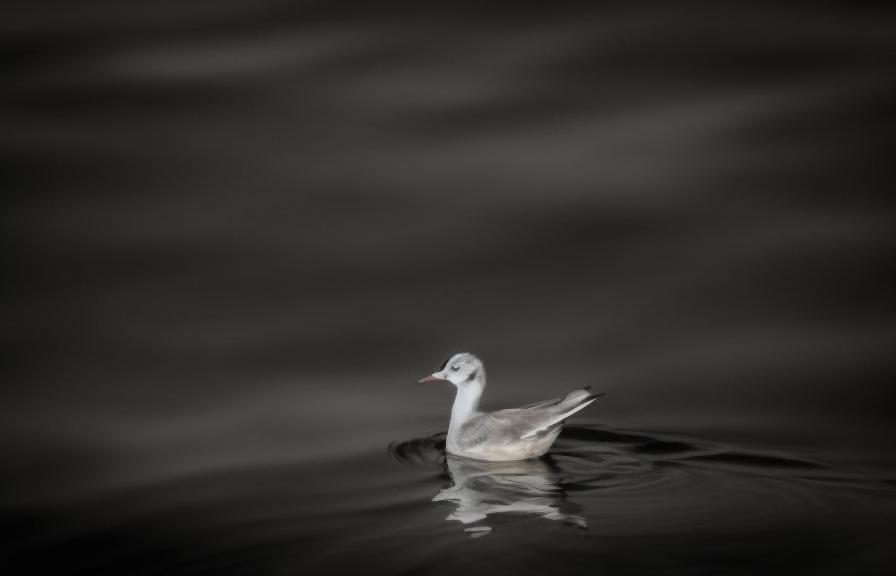
While black duck breeds have many desirable qualities, there are also challenges and considerations that breeders should be aware of when raising these birds. One challenge is ensuring proper predator protection, as black ducks can be vulnerable to predators such as foxes, raccoons, and birds of prey. Providing secure housing and supervised free-ranging can help mitigate this risk. Another consideration is managing potential health issues such as respiratory infections or parasites, which can be addressed through regular health checks and appropriate preventative measures.
Breeding black ducks also requires careful selection of breeding stock to maintain the desired characteristics of the breed, as well as managing brooding and rearing practices to ensure the health and development of the ducklings. Additionally, providing suitable housing and environmental enrichment is important for the overall well-being of black ducks. Breeders should also be mindful of local regulations regarding the keeping of ducks, as well as ethical considerations related to responsible breeding practices and animal welfare. By being aware of these challenges and considerations, breeders can ensure the successful raising of healthy and happy black ducks.
The Future of Black Duck Breeds
In conclusion, black duck breeds are valued for their striking appearance, adaptability, hardiness, and friendly disposition. Popular breeds within this category include the Cayuga duck, Swedish Black duck, and Black East Indie duck, each with its own unique qualities and practical value. Breeding and rearing black ducks requires careful consideration and attention to ensure the health and well-being of the birds, including selecting breeding stock with desirable traits and providing proper care throughout their development.
Caring for black duck breeds involves providing a nurturing environment that meets their physical, nutritional, and emotional needs while being mindful of potential challenges such as predator protection and health management. By being aware of these considerations, breeders can ensure the successful raising of healthy and happy black ducks. As interest in sustainable farming practices and backyard poultry keeping continues to grow, the future looks bright for black duck breeds as they continue to be valued for their unique qualities and practical value within the poultry community.
If you’re interested in learning more about black duck breeds, you might also want to check out this informative article on Poultry Wizard about the importance of providing adequate space for chickens in a coop. The article discusses how the size of the coop can impact the well-being and productivity of your flock. You can read it here.
FAQs
What are some common black duck breeds?
Some common black duck breeds include the Cayuga, Black Swedish, and East Indies ducks.
What are the characteristics of black duck breeds?
Black duck breeds typically have dark feathers, ranging from a deep black to a lustrous greenish-black color. They may also have a distinctive iridescent sheen.
What are the uses of black duck breeds?
Black duck breeds are often raised for their meat, eggs, and pest control abilities. They are also popular as ornamental birds due to their striking appearance.
How do you care for black duck breeds?
Caring for black duck breeds involves providing them with a suitable living environment, a balanced diet, access to water for swimming, and regular veterinary check-ups.
Are black duck breeds good for beginners?
Black duck breeds can be suitable for beginners, as they are generally hardy and easy to care for. However, it’s important for beginners to research and understand the specific needs of the breed they choose.
Meet Walter, the feathered-friend fanatic of Florida! Nestled in the sunshine state, Walter struts through life with his feathered companions, clucking his way to happiness. With a coop that’s fancier than a five-star hotel, he’s the Don Juan of the chicken world. When he’s not teaching his hens to do the cha-cha, you’ll find him in a heated debate with his prized rooster, Sir Clucks-a-Lot. Walter’s poultry passion is no yolk; he’s the sunny-side-up guy you never knew you needed in your flock of friends!

